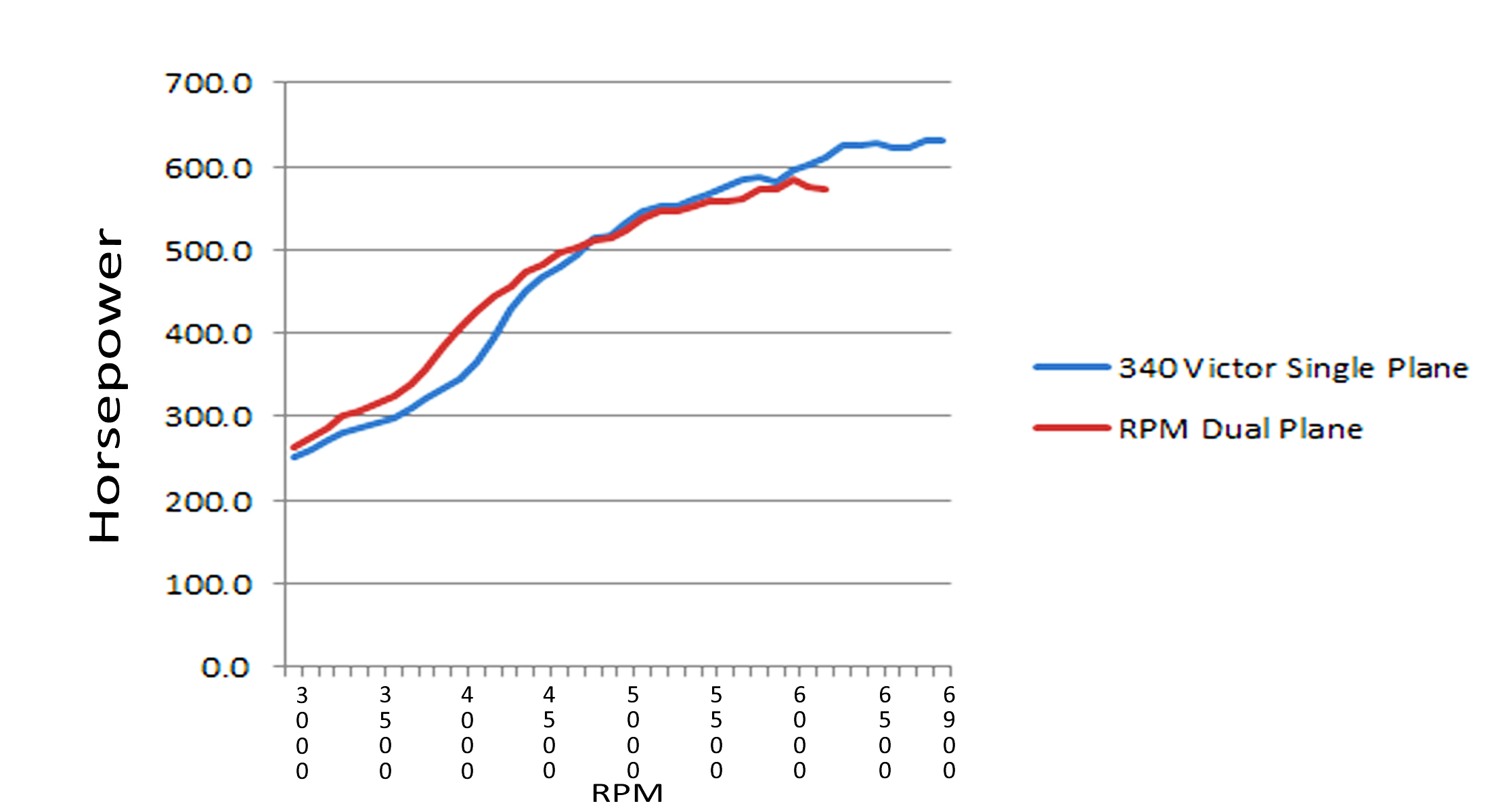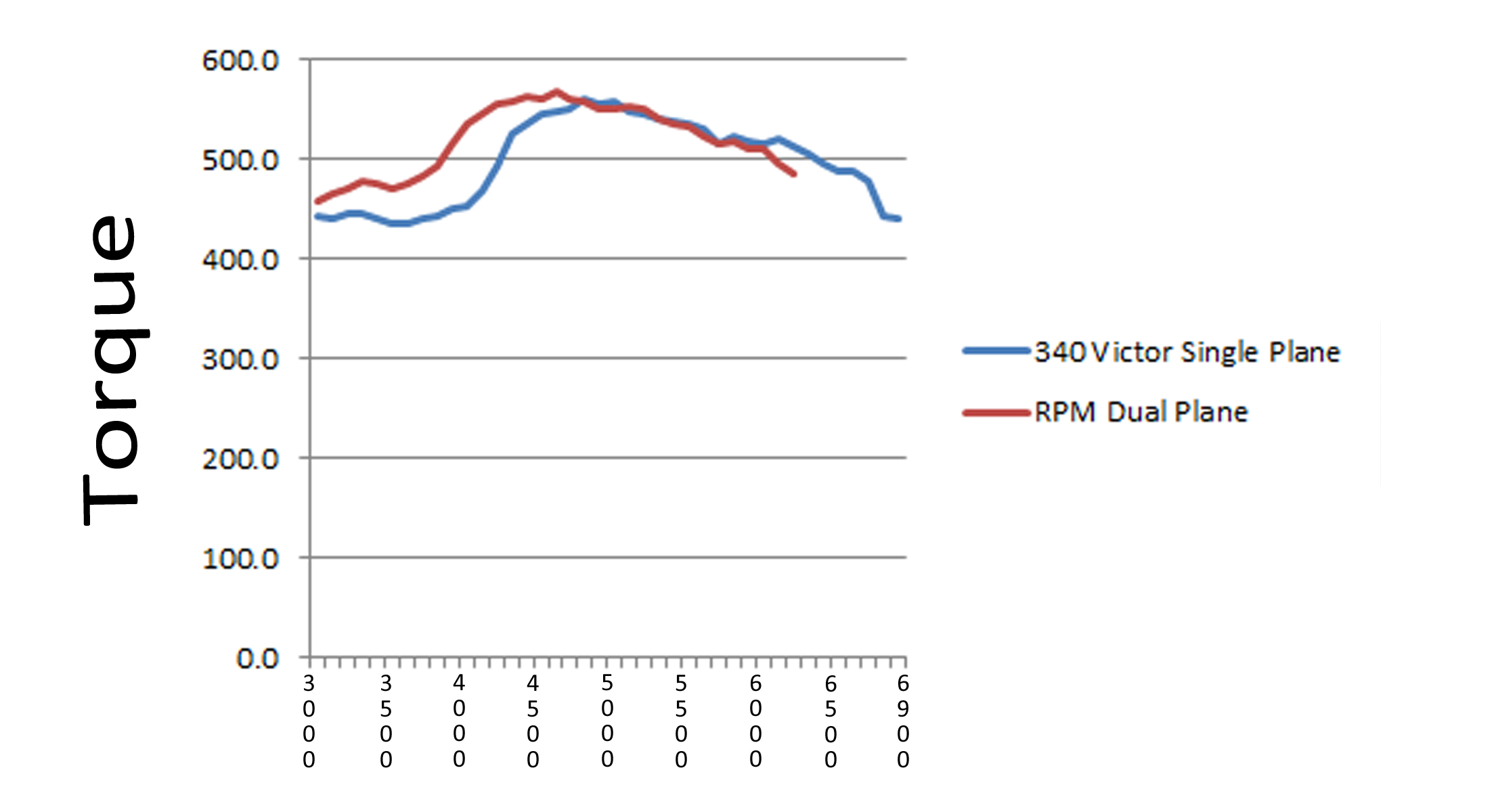Single Plane vs Dual Plane
I received another call the other day from a customer who said I should set the record straight on some misleading information on the internet (can you believe that – misleading information on the internet?!) about dual plane intakes versus single plane intakes, especially in reference to our FI Airgap intake.
A single plane intake will flow more air than a dual plane intake for the same engine! Does that make it better? In about 90% of the cases, that’s a big-No-good-buddy! In fact, in 90% of the cases a dual plane intake will outperform a single plane. Some years ago (June 2012) we did a dyno test of a small block Mopar 408” (See our Dyno Test #19). This engine produced 630hp with a single plane intake, and 580 with a dual plane. However, the dual plane was within single digits of horsepower and torque up to 5500 RPM, and at 4000 RPM the dual plane was 60 hp and 80 tq better. The single plane was only stronger from 5600 RPM to 6800 RPM. So unless you had a 4 speed or a 5000+ RPM stall speed and drove with your foot on the floor, the dual plane would dominate, especially on the street when you nailed the throttle anywhere near 4000 RPM – hang on!
We see similar results in Big Blocks. Look at our Dyno test #3. In comparing test #2 single plane with a 1050 Dominator and a 4 hole tapered spacer vs a 6 pack (dual plane) that had some older flow improvements.
In another dyno test (#6), similar results were seen. However, in this test the 6 pack did not show up quite as well. It was a stock intake with no flow improvements, indicating that the work on the 6 pack manifold is a definite help. The cam in this test was small for a 500” engine that would not allow the single plane and the 1050 dominator carb to show their upper RPM strength.
If you want to brag about your maximum horsepower, use a single plane, if you want to drive your car and enjoy it, use a dual plane. This is another one of those trade-offs you must deal with when building an engine.
As a side note, there are ways to make a dual plane intake act more like a single plane intake – in other words move the power range to a higher RPM level – with some mid-range power traded off. But there are no ways to make a single plane act more like a dual plane.
So does this mean that the flow bench lies when it says the single plane flows more? No, what it means is that flow numbers alone don't tell you the whole story - it's the combination of parts, just like any powerful sports team, the keyword is TEAM!
What this tells you is to pick a combination that meets your needs, not some pie-in-the-sky dream engine that is a nightmare to drive or because some "chatter" on the internet says it will work.
Single plane intake -vs- Dual plane intake
The charts below shows the torque and horsepower advantages between the two intakes used in the dyno test shown above. What is plain to see is that up to 4800rpm the dual plane intake is much stronger and from 4800 up to 6000 it is pretty much a trade-off. In other words, if you don't stay above 6000 rpm the dual plane is the best way to go. Obviously the horsepower and torque numbers are not going to be as high on a milder engine build but the performance differences will remain relative.
Click on either chart to enlarge.
Horsepower Torque
 
Now the next question to be asked and answered is how are you going to use your engine? If it is street up to 70% of the time, the dual plane will be your best choice. If it is 50/50 street/strip, you have a tough decision and know that neither manifold is perfect for a 50/50 engine. If it is a 4 speed and you are going to be shifting at 6500rpm+ or a high stall automatic (3800/4000), the single plane would be your best choice. And get a trailer! You will probably need it.
| 


